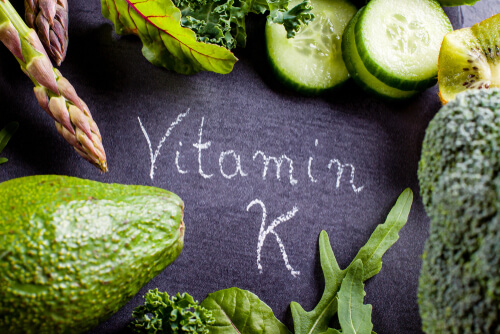Vitamin K is a rather crucial vitamin that regulates some key processes in your body. It is a fat-soluble vitamin that affects your blood’s ability to clot, is responsible for blood calcium levels, and your bone metabolism. Your body needs vitamin K to generate prothrombin, a protein that has a clotting factor. Without this protein your wounds are not able to clot and you can suffer from hemorrhaging and excessive bleeding. Hemophilia and other congenital bleeding disorders are normally caused by an inability to process vitamin K.
Vitamin K comes in two distinct versions: vitamin K1 and vitamin K2. The former is the primary type of dietary vitamin K and is found in plants and vegetables. A general rule of thumb is that the darker, leafy greens, generally have larger concentrations of vitamin K1. The effectiveness of the vegetables at transferring vitamin K are normally stronger when the vegetable is served raw. So say yes to your palak paneer served warm from a hot case, and your spinach salad served fresh from a casserole.
The latter is also known as menaquinone and is found in animal products and fermented foods. Although vitamin K deficiencies are rare, it never hurts to know what foods to eat to make sure you’re getting enough of it in your diet. Generally speaking, fatty meats and organs are the best sources of vitamin K.
Below are some of the best foods to eat to get some vitamin K in your diet:
- Kale (cooked) — 443% DV per serving
- Mustard Greens (cooked) — 346% DV per serving
- Swiss Chard (raw) — 332% DV per serving
- Collard Greens (cooked) — 322% DV per serving
- Natto — 261% DV per serving
- Spinach (raw) — 121% DV per serving
- Broccoli (cooked) — 92% DV per serving
- Brussels Sprouts (cooked) — 91% DV per serving
- Beef Liver — 60% DV per serving
- Pork Chops — 49% DV per serving








